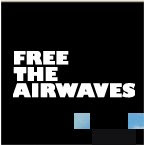 All eyes are on the presidential election today, but another important vote just took place at the Federal Communications Commission. By a vote of 5-0, the FCC formally agreed to open up the "white spaces" spectrum -- the unused airwaves between broadcast TV channels -- for wireless broadband service for the public. This is a clear victory for Internet users and anyone who wants good wireless communications.
All eyes are on the presidential election today, but another important vote just took place at the Federal Communications Commission. By a vote of 5-0, the FCC formally agreed to open up the "white spaces" spectrum -- the unused airwaves between broadcast TV channels -- for wireless broadband service for the public. This is a clear victory for Internet users and anyone who wants good wireless communications.The FCC has been looking at this issue carefully for the last six years. Google has worked hard on this matter with other tech companies and public interest groups because we think that this spectrum will help put better and faster Internet connections in the hands of the public. We also look forward to working with the FCC to finalize the method used to compute power levels of empty channels adjacent to TV channels (we have a number of public filings before the commission in this area and it is a vital issue in urban areas).
I've always thought that there are a lot of really incredible things that engineers and entrepreneurs can do with this spectrum. We will soon have "Wi-Fi on steroids," since these spectrum signals have much longer range than today's Wi-Fi technology and broadband access can be spread using fewer base stations resulting in better coverage at lower cost. And it is wonderful that the FCC has adopted the same successful unlicensed model used for Wi-Fi, which has resulted in a projected 1 billion Wi-Fi chips being produced this year. Now that the FCC has set the rules, I'm sure that we'll see similar growth in products to take advantage of this spectrum.
As an engineer, I was also really gratified to see that the FCC decided to put science over politics. For years the broadcasting lobby and others have tried to spread fear and confusion about this technology, rather than allow the FCC's engineers to simply do their work.
Finally, I want to applaud and thank FCC Chairman Kevin Martin, the other commissioners, and the FCC Office of Engineering and Technology for their leadership in advancing this important issue. And, thanks to the more than 20,000 of you who took a stand on this issue through our Free the Airwaves campaign, the FCC heard a clear message from consumers: these airwaves can bring wireless Internet to everyone everywhere.